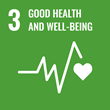Project information
At the Cross-road of Magnetic Fields and Light: A New Perspective of Cell Clock Control.
- Project Identification
- MUNI/G/1391/2018
- Project Period
- 3/2019 - 6/2022
- Investor / Pogramme / Project type
-
Masaryk University
- Grant Agency of Masaryk University
- INTERDISCIPLINARY - Interdisciplinary research projects
- MU Faculty or unit
- Faculty of Science
- Other MU Faculty/Unit
-
Faculty of Medicine
- Mgr. Tomáš Bárta, Ph.D.
- Mgr. Lucie Pešková, Ph.D.
- Other MU Faculty/Unit
-
Central European Institute of Technology
- Michael Andäng, PhD
It has been clearly shown that there is an association between the circadian clock and human health. A circadian feedback loop of clock gene expression is synchronized by light and the clock protein Cryptochrome (Cry) was shown to mediate such clock entrainment by light in Drosophila. Interestingly, the same protein was shown to be indispensable for magnetoreception and circadian rhythms are impacted by magnetic fields likely via Cry. Despite extensive research, synthetic theoretical framework putting together rather fragmental cases of magnetosensitivity based on Cry is missing, in particular in mammalian cells and tissues. The project addresses still unknown interplay between light and magnetic field on the cellular level under strictly controlled conditions. It gathers three, so far not collaborating, teams to employ state-of-the-art techniques of molecular embryology, genetic analysis and physical treatments to answer several hypotheses all focusing on Cry and other clock genes in the center. We will tackle the problem of mammalian Cry photo- and magnetosensitivity and consequent hypothetical impacts of light and magnetic fields on cellular and developmental programs controlled by circadian clock. The project profits from sharing of theoretical and methodological knowledge as well as unique instrumentation unattainable elsewhere. Due to the novel multidisciplinary approach the outputs may advance our understanding of important environmental impacts on processes orchestrating networks of cellular communication on the intersection of neural function, development, regeneration and circadian control.
Sustainable Development Goals
Masaryk University is committed to the UN Sustainable Development Goals, which aim to improve the conditions and quality of life on our planet by 2030.
Publications
Total number of publications: 8
2022
-
LuminoCell: a versatile and affordable platform for real-time monitoring of luciferase-based reporters
Life science alliance, year: 2022, volume: 5, edition: 8, DOI
2021
-
Cryptochrome-dependent magnetoreception in a heteropteran insect continues even after 24 h in darkness
Journal of Experimental Biology, year: 2021, volume: 224, edition: 19, DOI
2020
-
HCN Channel Activity Balances Quiescence and Proliferation in Neural Stem Cells and Is a Selective Target for Neuroprotection During Cancer Treatment
MOLECULAR CANCER RESEARCH, year: 2020, volume: 18, edition: 10, DOI
-
MAGNETICKÉ POLE ZVYŠUJE POHYBOVOU AKTIVITU MYŠI, NEMĚNÍ SE VŠAK JEJÍ DENNÍ RYTMUS.
Year: 2020, type: Appeared in Conference without Proceedings
-
miR-183/96/182 cluster is an important morphogenetic factor targetingPAX6expression in differentiating human retinal organoids
Stem Cells, year: 2020, volume: 38, edition: 12, DOI
2019
-
Human retinal organoids as a tool for investigation of circadian rhythms.
Year: 2019, type: Conference abstract
-
Weak radiofrequency fields affect the insect circadian clock
Journal of the Royal Society Interface, year: 2019, volume: 16, edition: 158, DOI
-
Weak radiofrequency fields affect the insect circadian clock
Year: 2019, type: Conference abstract
